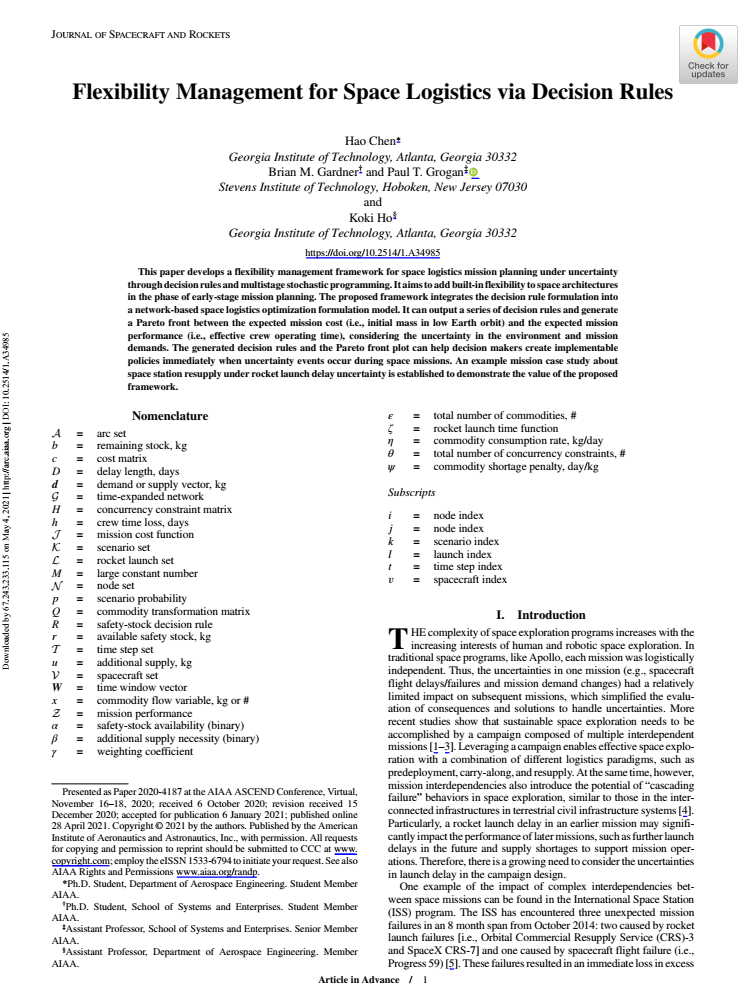A new research article co-authored by Hao Chen and Koki Ho (Georgia Tech) and Brian Gardner and Paul Grogan appears in Journal of Spacecraft and Rockets as an “article in advance” manuscript.
Flexibility Management for Space Logistics via Decision Rules
This paper develops a flexibility management framework for space logistics mission planning under uncertainty through decision rules and multistage stochastic programming. It aims to add built-in flexibility to space architectures in the phase of early-stage mission planning. The proposed framework integrates the decision rule formulation into a network-based space logistics optimization formulation model. It can output a series of decision rules and generate a Pareto front between the expected mission cost (i.e., initial mass in low Earth orbit) and the expected mission performance (i.e., effective crew operating time), considering the uncertainty in the environment and mission demands. The generated decision rules and the Pareto front plot can help decision makers create implementable
policies immediately when uncertainty events occur during space missions. An example mission case study about space station resupply under rocket launch delay uncertainty is established to demonstrate the value of the proposed framework.


